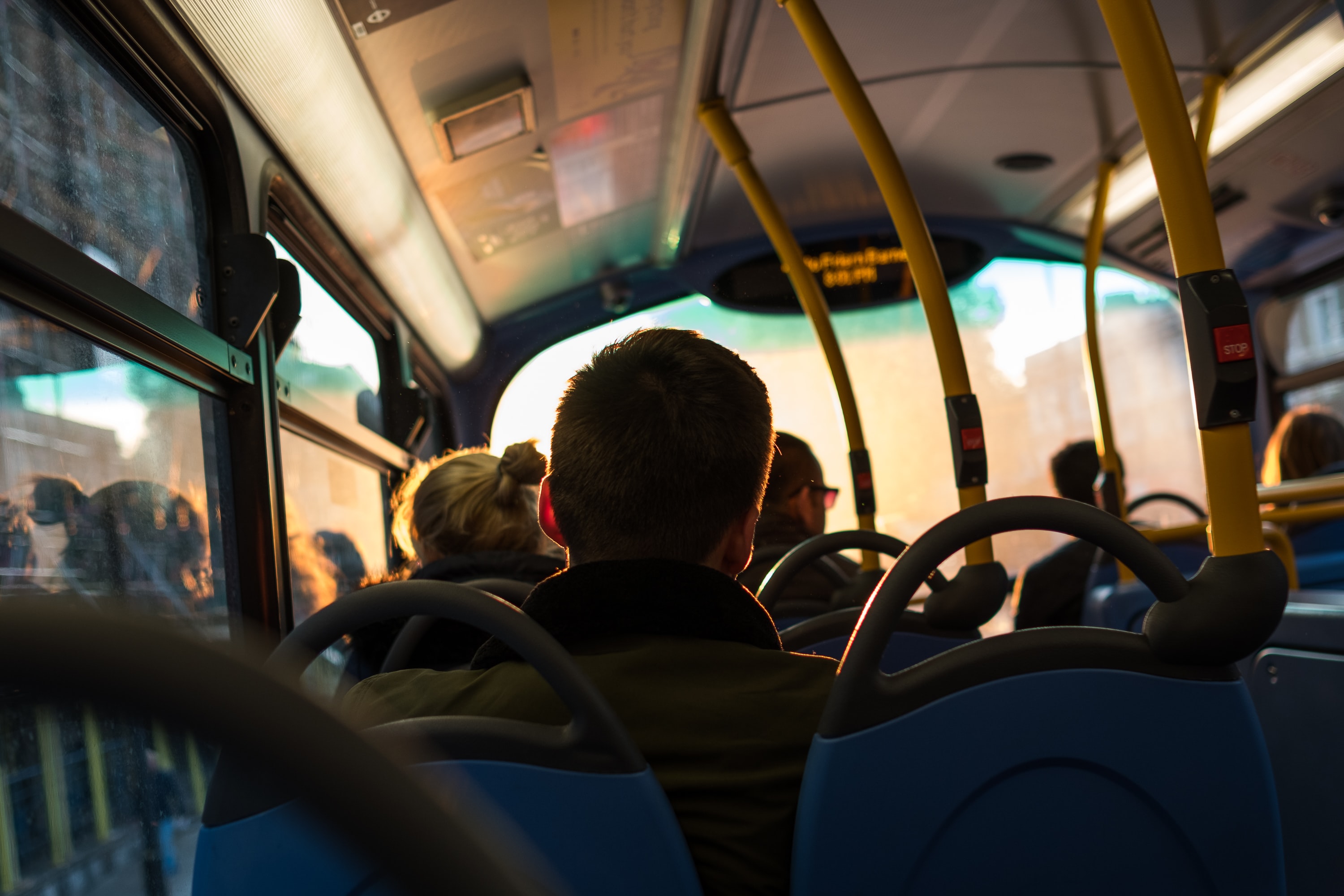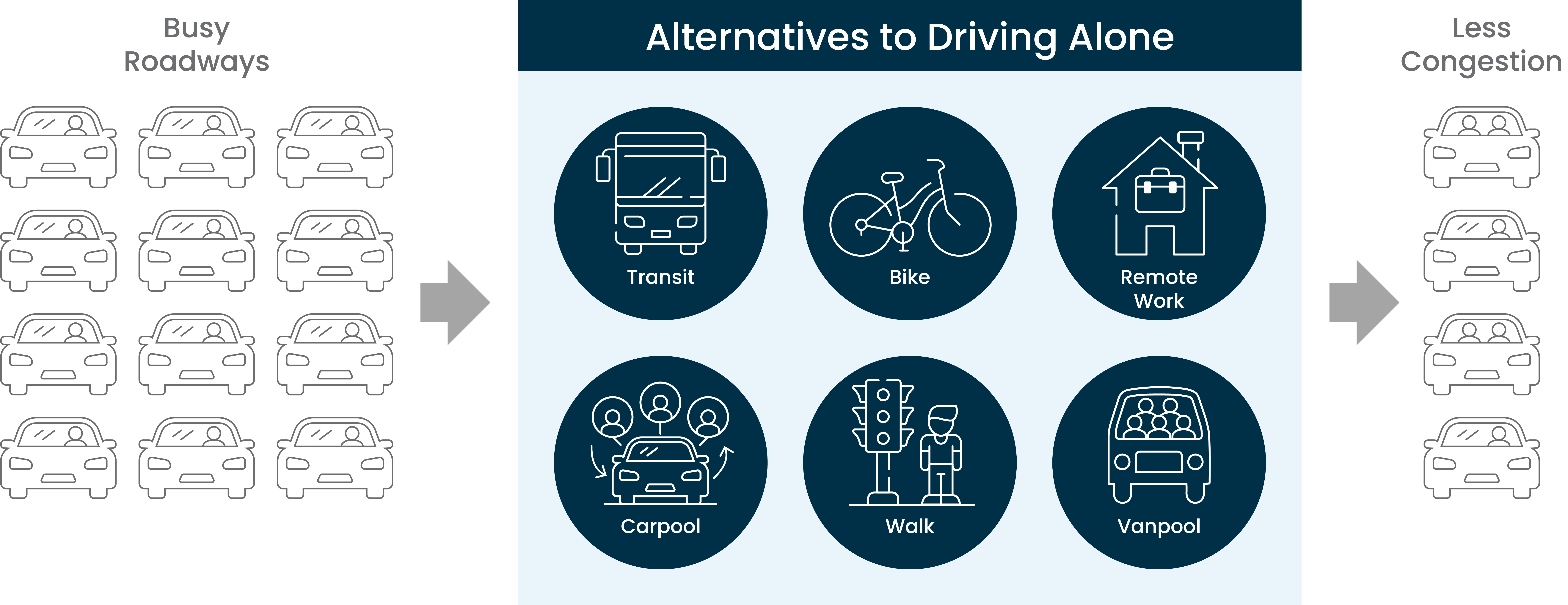What is CommuteWISE?
CommuteWISE is Southeastern Wisconsin’s transportation demand management (TDM) program. The Commission provides tools, subsidies, and expertise to empower individuals and employers to expand travel choices beyond driving alone.
CommuteWISE is a program managed by the Commission that encourages a shift from drive-alone commuting to cost-effective and sustainable travel.

CommuteWISE is Southeastern Wisconsin’s transportation demand management (TDM) program. The Commission provides tools, subsidies, and expertise to empower individuals and employers to expand travel choices beyond driving alone.
Transportation demand management refers to policies and programs that help reduce traffic congestion and improve system efficiency. TDM programs attempt to grow the number of commuters choosing sustainable options such as carpooling, vanpooling, taking transit, biking, and walking to work. TDM also involves shifting travel to less congested times or routes or avoiding trips with remote work options. Together these alternatives can reduce congestion on our region’s roadways.

The Commission facilitates transportation demand management in Southeastern Wisconsin by maintaining a regional land use and transportation plan and a transportation improvement program, and assisting transit operators with local plans and studies. Transportation projects, like roadway improvements, passenger rail development, or bus service expansion take time and investment. While the pillars of Commission work are long-range efforts, shifting habits for how or when people use transportation is a cost-effective solution with immediate and worthwhile effects, even for those still driving alone.
With CommuteWISE as a resource, we all can support transportation demand management in Southeastern Wisconsin. The Commission, in concert with other agencies serving Southeastern Wisconsin, promotes transportation options to individuals and employers to reduce traffic congestion, increase system efficiency, improve air quality, and expand access to places of work. Employers and individuals throughout the Region can help shift the drive-alone commute culture.
Facilitating the shift from drive-alone commuting to cost-effective and sustainable travel helps reduce pollution, congestion, and vehicle-miles traveled, supporting an improved travel experience. The CommuteWISE program provides a framework for this shift through the regional tools and services outlined below.
CommuteWISE provides a free, online trip-planning and tracking tool for individuals and employers. Available as a website or as an app, users can browse transportation options and routes and search for carpool partners. The gamified platform incentivizes people to choose sustainable transportation options through challenges that offer prizes for tracking non-drive-alone trips.
The platform also allows employers to create a network for exclusive workplace ride-matching and administering incentives such as Emergency Ride Home or rewards for employees that track their trips.
Challenge Events
To promote a culture that celebrates using alternatives to driving alone, CommuteWISE hosts two annual challenges – the Spring Roll Challenge and the September CommuteWISE Challenge. Organizations of any size and individuals are invited to participate.
Employer Subsidies
CommuteWISE is to begin offering short-term reimbursements to employers for pilot transportation programs such as bus passes, vanpools, or biking incentives for their team. More information coming soon!
Commission staff are available to help employers determine the optimal commute policies for their organizations. We are a source of information for making any organization multimodal-commute friendly and evaluating transportation options for employees.